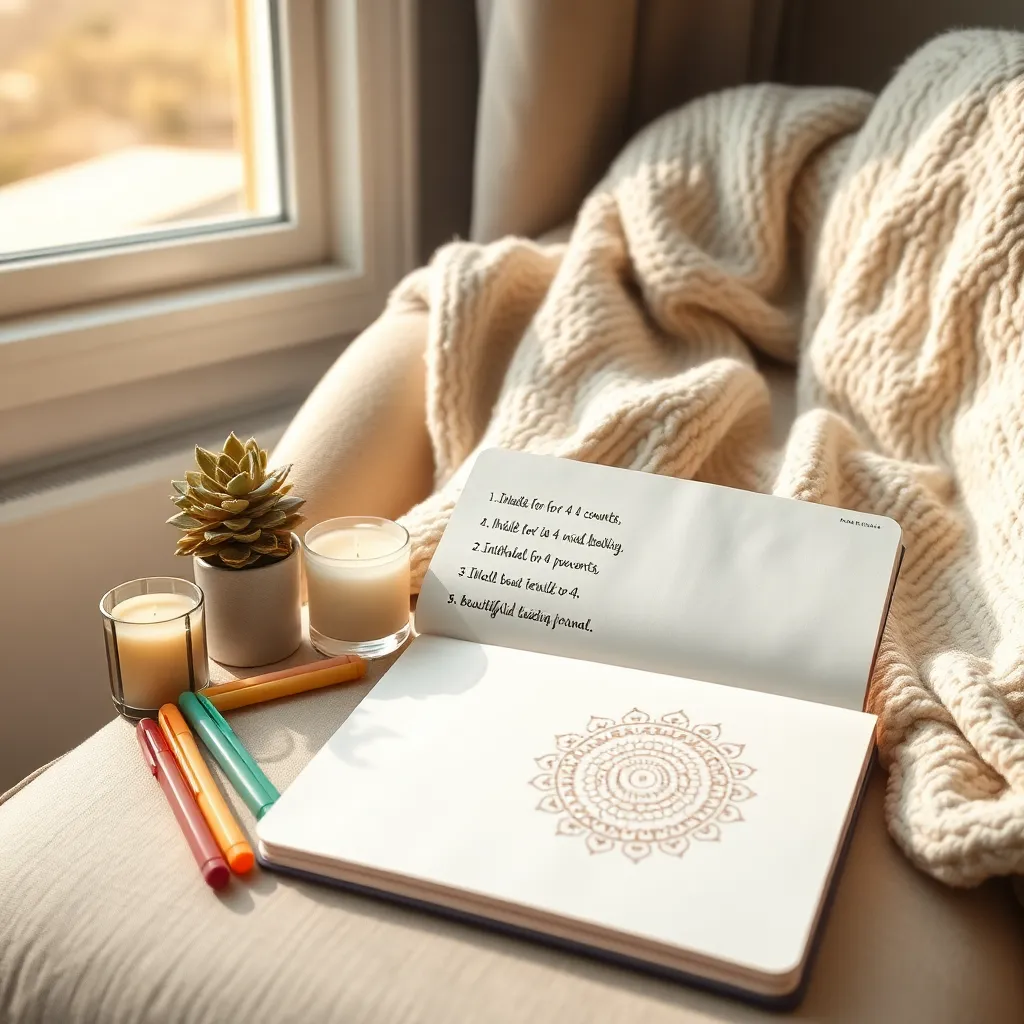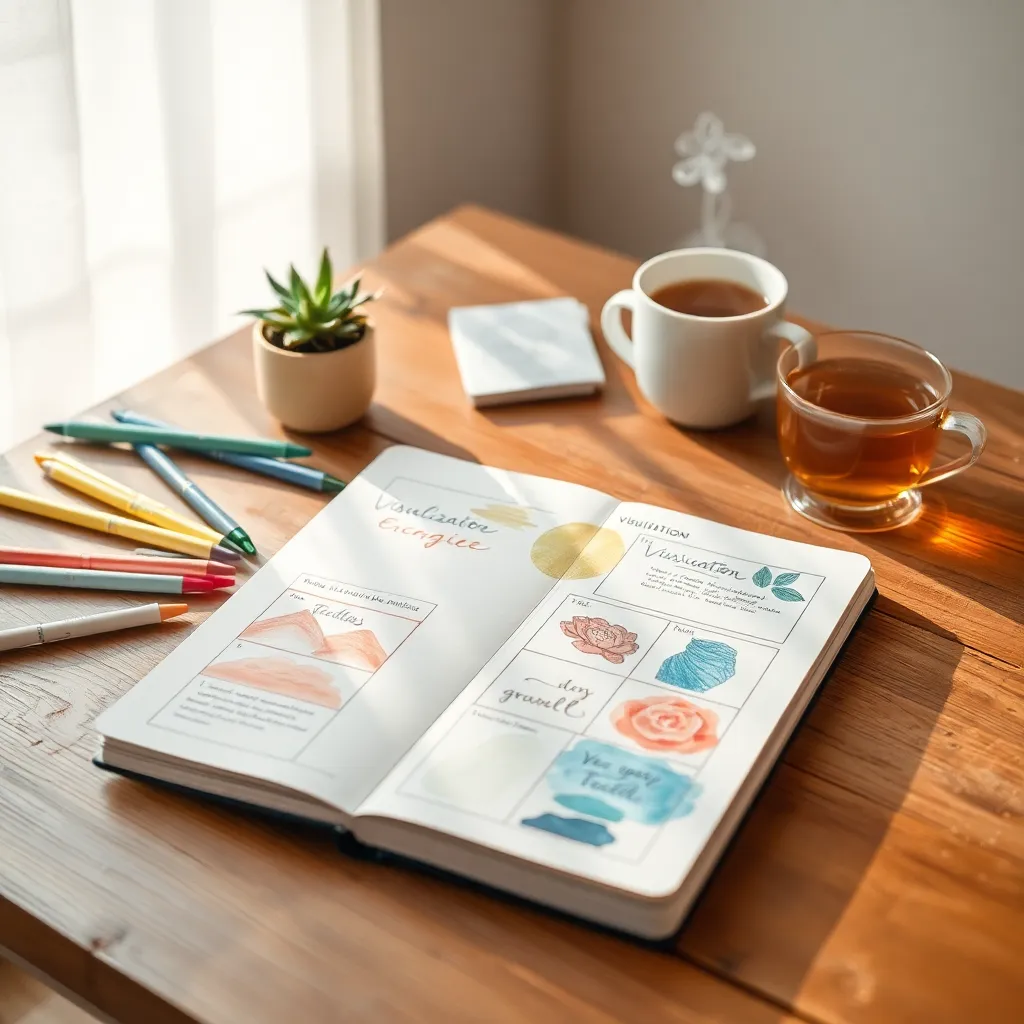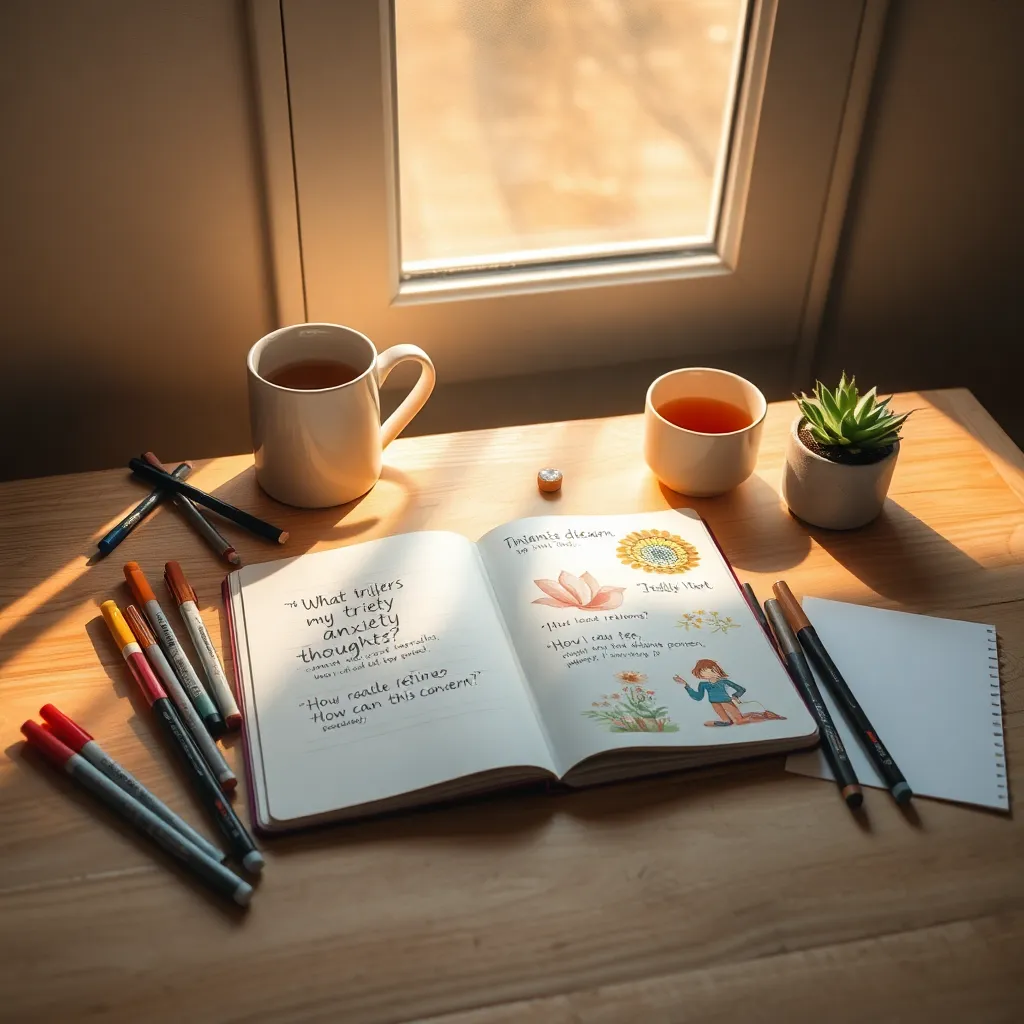In today’s fast-paced world, finding calm amidst chaos is vital. Journaling offers a gentle, personal refuge, soothing anxious minds and nurturing well-being.
Dive into this guide to discover simple techniques. You’ll gain tools to transform racing thoughts into peaceful reflections. Your journey to tranquility begins here.
Practice Gratitude Journaling Daily

Transform your day by beginning with gratitude journaling. Each morning, list 3 things you’re thankful for to shift focus from anxiety to appreciation.
End your day with reflection. Write about a positive event you experienced, enhancing awareness of joyful moments. This simple practice nurtures a calmer mindset.
Incorporate Deep Breathing Exercises

Incorporate deep breathing exercises into your journaling routine to enhance relaxation. Begin your session with a few minutes of mindful breathing to center your thoughts. This practice helps to calm the mind, making your journaling more effective.
Use prompts to deepen the experience:
- “As I breathe deeply, I feel…”
- “In this moment of calm, I want to release…”
These prompts will guide your reflection and help reduce anxiety, promoting a sense of peace.
Use Visualization in Writing

Visualize your calmest self while writing. This anchors your mind, enhancing focus and reducing anxiety. Picture serene scenes or moments of happiness as you jot down thoughts.
Use prompts to guide visualization: “Describe your ideal peaceful day” or “Write about a place where you feel safe.” These help create mental clarity and emotional balance.
Explore Stream-of-Consciousness Entries

Engage your mind with stream-of-consciousness writing to release anxiety. Simply let your thoughts flow onto the page without judgment. Write continuously, allowing raw emotion and ideas to surface.
Try these prompts:
- “Right now, I feel…”
- “What I truly want to express is…”
Use them to deepen self-awareness and find calm.
Identify and Challenge Anxious Thoughts

Recognize anxious thoughts by writing them down. Challenge these thoughts by questioning their validity and considering alternative perspectives.
Use prompts like:
- “What evidence do I have for this thought?”
- “How would I advise a friend thinking this way?”
to gain clarity and calm.
Conclusion: Creating Beautiful Outdoor Spaces
In navigating the complexities of relationships, journaling can be a transformative tool to calm anxiety and foster understanding. This article explored five key techniques: identifying triggers to better understand emotional responses, practicing gratitude to enhance positivity, setting intentions to cultivate mindful interactions, reflecting on communication patterns to improve dialogue, and visualizing positive outcomes to strengthen relational bonds. These methods are designed to not only soothe anxiety but also to build a foundation of resilience and empathy within your relationships.
As an immediate next step, take a moment today to begin your journaling journey. Choose one technique that resonates with you, and dedicate just ten minutes to explore your thoughts and feelings through writing. This small commitment can lead to profound insights and improvements in your relationships.
Remember, true relationship success is a continuous journey, not a destination. Save or bookmark this article now to revisit these techniques whenever you need guidance or a boost of inspiration. By integrating these practices into your routine, you are investing in a future filled with more meaningful and harmonious connections. Embrace this opportunity to nurture your relationships and watch them flourish with understanding and love.

